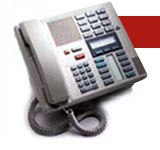
- Home
- About Us
- Why Buy Reconditioned?
- Virtual Tour
- Corporate
Gallery
· Ad Campaign 1
· Ad Campaign 2
· Recycle Editorial
· 7 Reasons Ad - Privacy Statement
|
|
||||||
 Recycle and Reuse Here
are some good reasons for buying used
telecom equipment. Technology means change. Usually, change for the better. Today's phone systems are smaller, more modular, and more scaleable. They attach to more sophisticated peripherals, drive better station sets, and support more features than models of one, two, three, or more years ago.
For a lot of companies, this stuff matters. They want to be able to upgrade their PBX internally to support ACD features on ten stations. They want to create a transparent, four-digit dial plan across six small regional offices. They want ISDN PRI support. They want super-integrated voicemail that prompts users via station-set LCDs. They want a PC-based attendant position. They want digital phones that provide analog ports in the back, for hooking up fax machines and modems. They like the slick, up-to-date look of this year's telephones. These are just a few good reasons for buying new telecom equipment. On the other hand, a lot of compa-nies aren't sold on all this new fangled stuff. What they want from a phone system is what people have always wanted: to dial, answer, transfer, hold, and conference. They don't anticipate doing a lot of sophisticated, PC-based call-control. Or maybe they do - but figure that most of the features they're looking for (e.g. the "universal inbox," desk-top call-control, etc.) can be supplied by hooking a unified messaging server to their LAN and integrating it with any-old-standard-PBX on analog ports.If this sounds more your speed, i.e., you're looking for reliable, conven-tional, maintainable core telecom equipment; you don't mind driving last year's model; and you want to save some money, you should consider the secondary market. GOOD REASONS, DETAILED BANG FOR THE BUCK. Same reason why someone would want to buy a used car. It works, it takes you from point A to point B, but doesn't cost you an arm and a leg (or any other appendage you value) to do so. Refurbished equip-ment costs 15% to 75% less than new. If you're not made of money - e.g. you're a start-up company that needs a working phone system in a hurry - this reason alone should be good enough to send you to one of the superior secondary dealers in our listing. Or suppose you're an established company whose spending allowance isn't as tightly reined, but you need an additional phone system (at a new, smaller branch office), right away. You don't need bleeding-edge technology, but you need the new office up and running, yesterday. Well, AVAILABILITY is another reason for ordering secondary. No weeks of waiting for your new system: you can get secondary pretty much right away, because dealers usually keep volumes in stock. They frequently offer to ship on the day the order comes in, and via overnight delivery, if necessary. EXPERTISE AND SUPPORT. Good secondary dealers know precisely what they're dealing with. Many of them specialize in certain brands of equipment; most, if not all of them, actually get inside the equipment during the refurbishing process. So an elite secondary dealer can usually act as a single-point-of-contact for supply and technical support. They'll help you with MAC's, upgrades, and maintenance. And when it comes time to add that slick, new unified messaging system, they'll help you graft it onto that old, reliable PBX. EVOLUTIONARY PRESSURE TO PERFORM. Competition is stiff, so those refurbishers who don't do a good job don't last long in the business. Most "long-term survivors" do tip-top work. And if something goes wrong (e.g., a station set shows up DOA), they'll bend over backwards to cor-rect the problem, instead of bobbing, weaving, and pointing fingers at the manufacturer. It's worth noting too, that many secondary firms offer war-ranties as good, or better, than the equipment's original manufacturer. By Betty Yuan, Teleconnect magazine download
pdf version |

